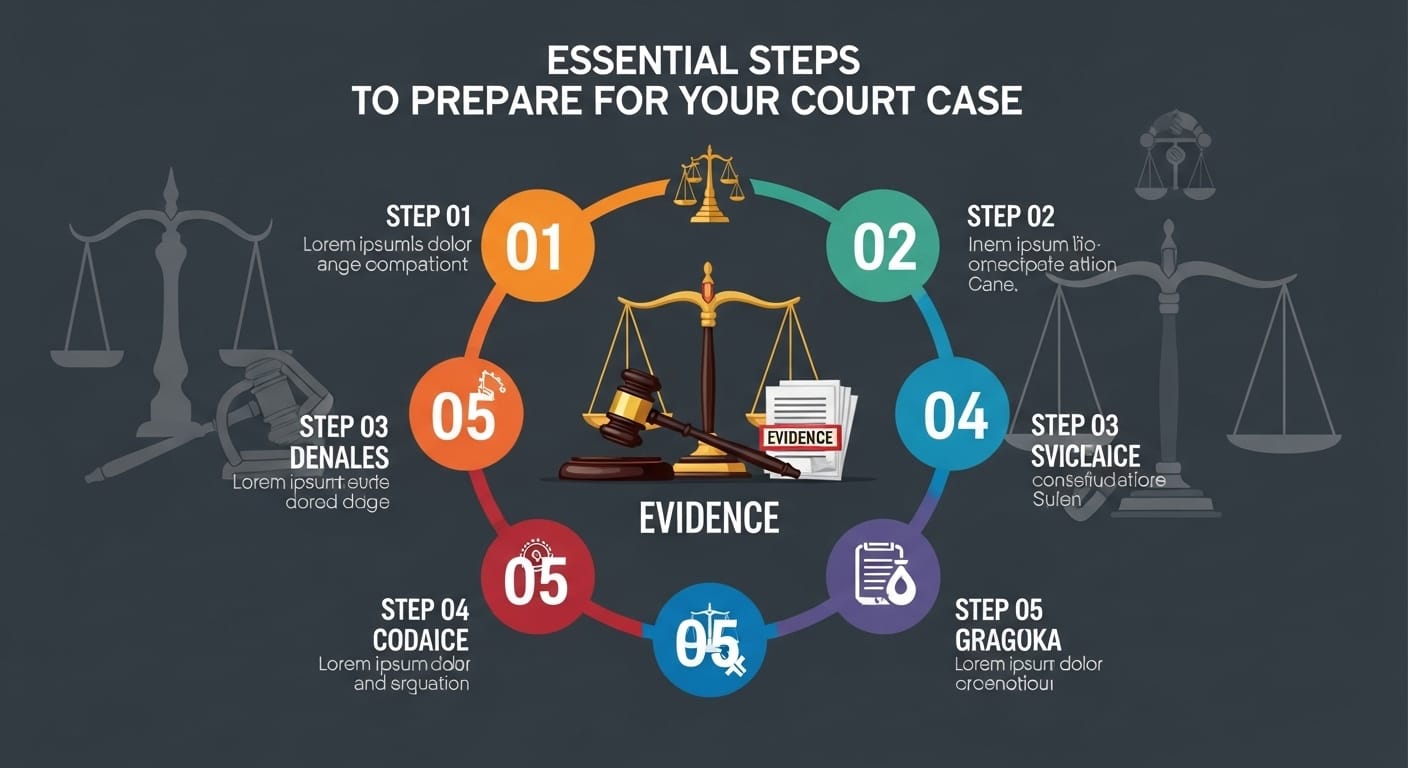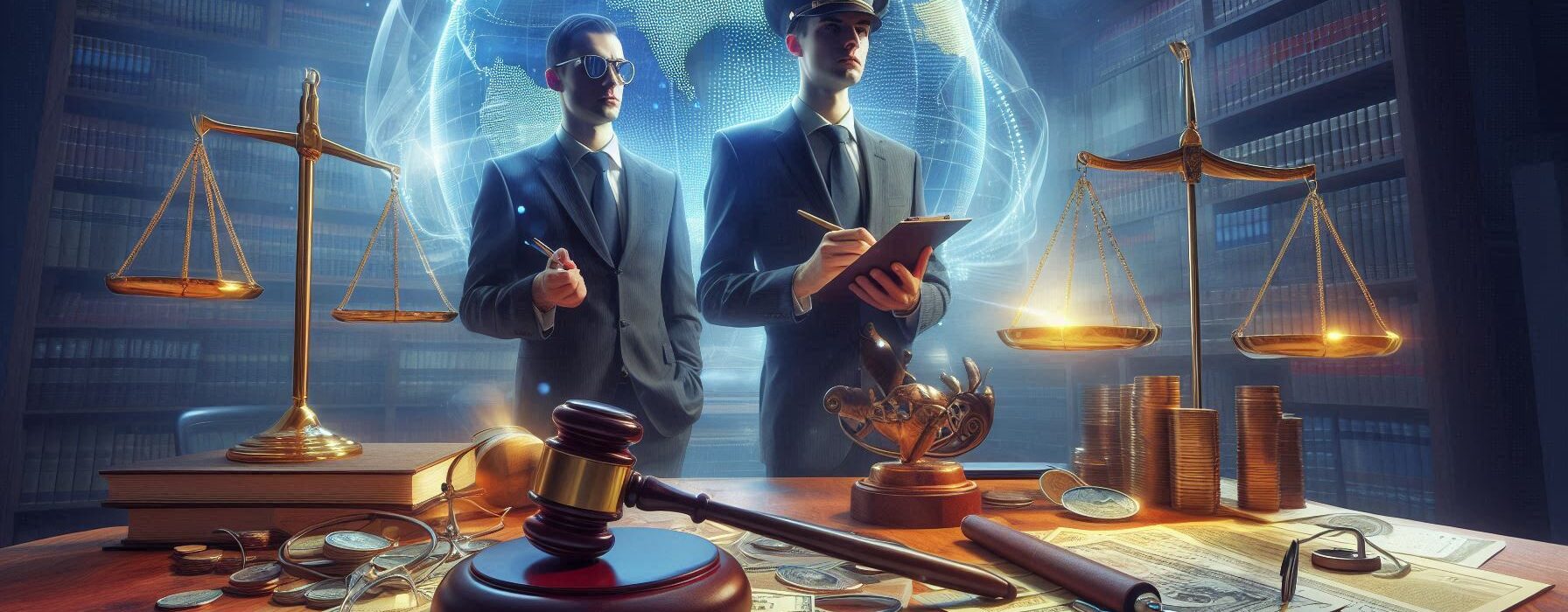So, you’ve decided to sue someone. Maybe they owe you money, or perhaps they accidentally turned your prized garden gnome into a lawn decoration.
Whatever the reason, preparing for a court case can feel like gearing up for an epic battle—minus the swords and armor (unless that’s your style). Here are some essential steps to help you navigate this legal jungle without losing your mind—or your sense of humor.

Top Takeaways and Key Concepts
Understand your case fully by reviewing all facts, laws, and documents before taking legal action.
Gather and organize strong evidence like contracts, receipts, photos, and messages to support your claims.
Identify reliable witnesses who can confirm key facts and provide clear statements.
Consult an attorney early to avoid legal mistakes and strengthen your strategy.
Prepare thoroughly for court by organizing documents, practicing testimony, and staying calm under pressure.
Summary of This Article
This article provides a practical guide to preparing for a court case, whether it’s a small dispute or a serious lawsuit. It emphasizes the importance of understanding the details of your case, including relevant documents and applicable laws. Gathering clear evidence and organizing it methodically is essential to building a strong argument. The article also highlights the value of credible witnesses whose testimonies support your claims. Consulting an attorney is strongly recommended to navigate legal procedures and avoid costly errors. Finally, it stresses preparation and professionalism in court—practicing your testimony, dressing appropriately, and staying calm to present your case confidently.
Understand Your Case Inside and Out

First things first: know what you’re dealing with. Understanding your case is like knowing the rules of Monopoly before you start playing; otherwise, you’ll end up in jail without passing Go or collecting $200!
Start by reviewing all relevant documents. This includes contracts, emails, text messages—basically anything that could make or break your case.
I remember when I was involved in a small claims dispute over a faulty blender (don’t ask). I thought I had everything figured out until I found an email chain where my opponent admitted they sold me a “slightly used” model. Talk about gold!
So, dig deep into those dusty folders on your computer and pull out every scrap of evidence you can find.
Also, familiarize yourself with the legal issues at play. What laws apply? Is it contract law? Tort law? Or did someone just get really creative with their definitions? If you’re feeling overwhelmed, don’t hesitate to consult Google—or better yet, a real lawyer!
Gather Evidence Like Sherlock Holmes
Next up is gathering evidence. Imagine you’re Sherlock Holmes but without the deerstalker hat (unless that’s your thing). You need to collect all pertinent documents related to your case: receipts, photographs, witness statements—the works!
For instance, if you’re suing because someone crashed into your car while texting about their cat’s new Instagram account (seriously), make sure to take pictures of the damage from every angle possible. And don’t forget any police reports or insurance documents—they’re crucial.
Once you’ve gathered everything, organize it systematically. You might want to create folders labeled “Evidence,” “Witnesses,” and “My Ex-Best Friend Who Totally Screwed Me Over.” Trust me; organization will save you from future headaches when you’re scrambling to find that one vital piece of evidence two minutes before trial.
Identify Witnesses Who Can Help You Shine
Now let’s talk witnesses. Think of them as your backup singers in this courtroom concert—you want them to hit all the right notes! Make a list of potential witnesses who can back up your story. Friends? Family? That neighbor who always seems to be watching everything unfold through their window?
When I was prepping for my own court appearance (yes, there was another blender incident), I reached out to my neighbor who saw everything go down—and boy did he have opinions! Just make sure these witnesses are willing and able to testify on your behalf; nobody wants surprises on trial day unless it’s cake.
Once you’ve identified them, gather their statements early on. You want solid testimonies that support your side of the story—not vague recollections like “I think something happened.” Clear details are key!
Consult an Attorney—Seriously!
Let’s be honest here: navigating the legal system alone can feel like trying to assemble IKEA furniture without instructions—confusing and potentially painful! Consulting an attorney experienced in cases similar to yours is not only smart; it’s often necessary.
An attorney can help clarify complex legal jargon that sounds more like ancient Greek than English. They’ll guide you through what needs doing—from filing paperwork correctly to strategizing how best to present your case in court.
Remember my friend who tried representing himself? Yeah… let’s just say he learned some hard lessons about “self-representation.”
If hiring an attorney feels daunting due to costs, look for free legal clinics or resources offered by local bar associations. It’s amazing how much help is available if you’re willing to ask!
Organize Your Documents Like a Pro
By now you’ve probably collected heaps of papers—some important and some that look suspiciously like last week’s grocery list. Organizing these documents is crucial because nothing says “unprepared” quite like fumbling around looking for Exhibit A while the judge taps their pen impatiently.
Create a chronological order for everything so it tells a clear story—your story! Use binders or digital folders; whatever works best for you. Label each document clearly so even someone unfamiliar with the situation could understand what they’re looking at.
And here’s a pro tip: keep multiple copies handy! Nothing is worse than realizing you’ve forgotten an essential paper at home when it’s time for court proceedings.
Practice Your Testimony
Alright folks, this step might seem tedious but trust me—it pays off big time! Practicing what you’ll say during testimony helps reduce nerves and prepares you for unexpected questions that may pop up faster than popcorn in a microwave.
You could enlist friends or family members as mock jurors—they’ll love being part of this dramatic reenactment (or not!). Walk through each point carefully and try answering tough questions they throw at you because judges love curveballs almost as much as baseball fans do!
Interestingly enough, practicing also gives you confidence—a must-have when facing off against opposing counsel who looks like they’ve been preparing since kindergarten.
Dress Appropriately
Speaking of confidence—let’s chat wardrobe choices! The way you dress matters more than you’d think; after all, first impressions count—even in courtrooms where everyone looks vaguely miserable.
Aim for business casual unless instructed otherwise by specific court guidelines (which exist because apparently jeans aren’t considered formal wear). A neat outfit shows respect towards both the court process and yourself—it says “I’m serious about winning this!”
But don’t overdo it either; showing up dressed like you’re ready for prom might raise eyebrows instead of admiration!
Stay Calm Under Pressure
Finally—and perhaps most importantly—stay calm during proceedings! Courtrooms can feel intimidating but remember: even judges are human beings who occasionally misplace their glasses or mix up names (trust me!).
Take deep breaths before speaking if anxiety strikes unexpectedly; pausing allows thoughts clarity too—and sometimes judges appreciate brevity over long-winded explanations anyway!
In conclusion folks: preparation is key when heading into any legal battle whether big or small—so arm yourself accordingly with knowledge plus evidence galore while keeping humor alive along this wild ride called litigation!
Suggested External Resources:
Legal Information Institute
https://www.law.cornell.edu/
Nolo – Small Claims Court Guide
https://www.nolo.com/legal-encyclopedia/small-claims-court-guide-29083.html
American Bar Association – Find Legal Help
https://www.americanbar.org/groups/legal_services/flh-home/
Frequently Asked Questions
What is the first step in preparing for a court case?
Start by fully understanding your case, including all facts, relevant laws, and supporting documents. Knowing the details helps you build a stronger argument.
What kind of evidence should I gather for my case?
Collect contracts, receipts, photos, written communications, and witness statements. Organize them clearly to demonstrate your claims and support your side effectively.
How do I choose reliable witnesses?
Choose witnesses who directly observed key events and can provide clear, factual testimony. Their credibility and consistency can significantly strengthen your case.
Do I need to hire an attorney for my court case?
While you can represent yourself, hiring an attorney helps you avoid mistakes and improves your chances of success, especially in complex or high-stakes cases.
How should I organize documents for court?
Label all documents clearly and arrange them chronologically. Keep multiple copies of important evidence to ensure quick access during hearings or trials.
Why is practicing testimony important before court?
Practicing helps you stay calm, speak clearly, and prepare for unexpected questions. It builds confidence and ensures your points are delivered effectively.
What should I wear and how should I behave in court?
Dress professionally in business attire and remain respectful at all times. Staying calm and composed helps create a positive impression with the judge and jury.

Kevin Collier is a legal expert passionate about simplifying complex legal concepts for everyday individuals. With a focus on providing clear, practical information, he covers a wide range of topics, including rights, responsibilities, and legal procedures. Kevin aims to empower readers with the knowledge they need to navigate the legal landscape confidently, ensuring they can make informed decisions regarding their legal matters. Through insightful articles and easy-to-understand resources, he helps demystify the law, making it accessible to all.










